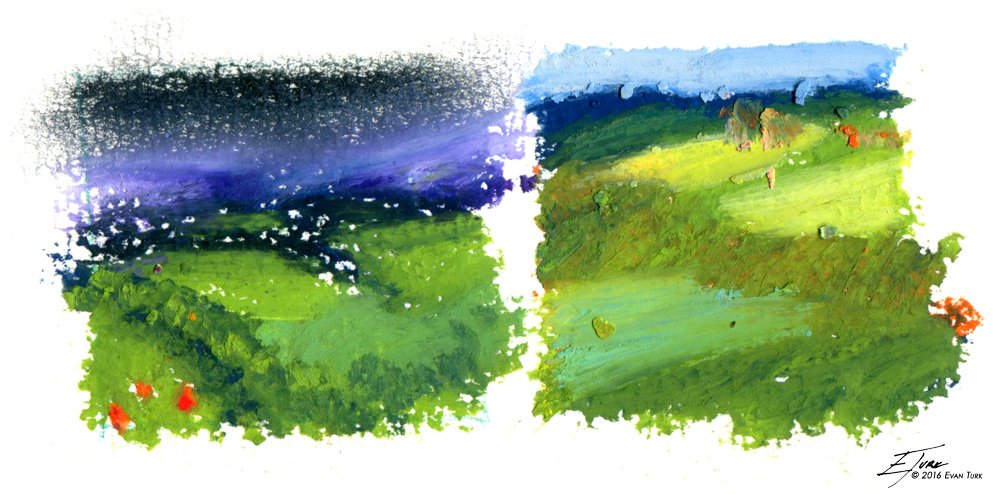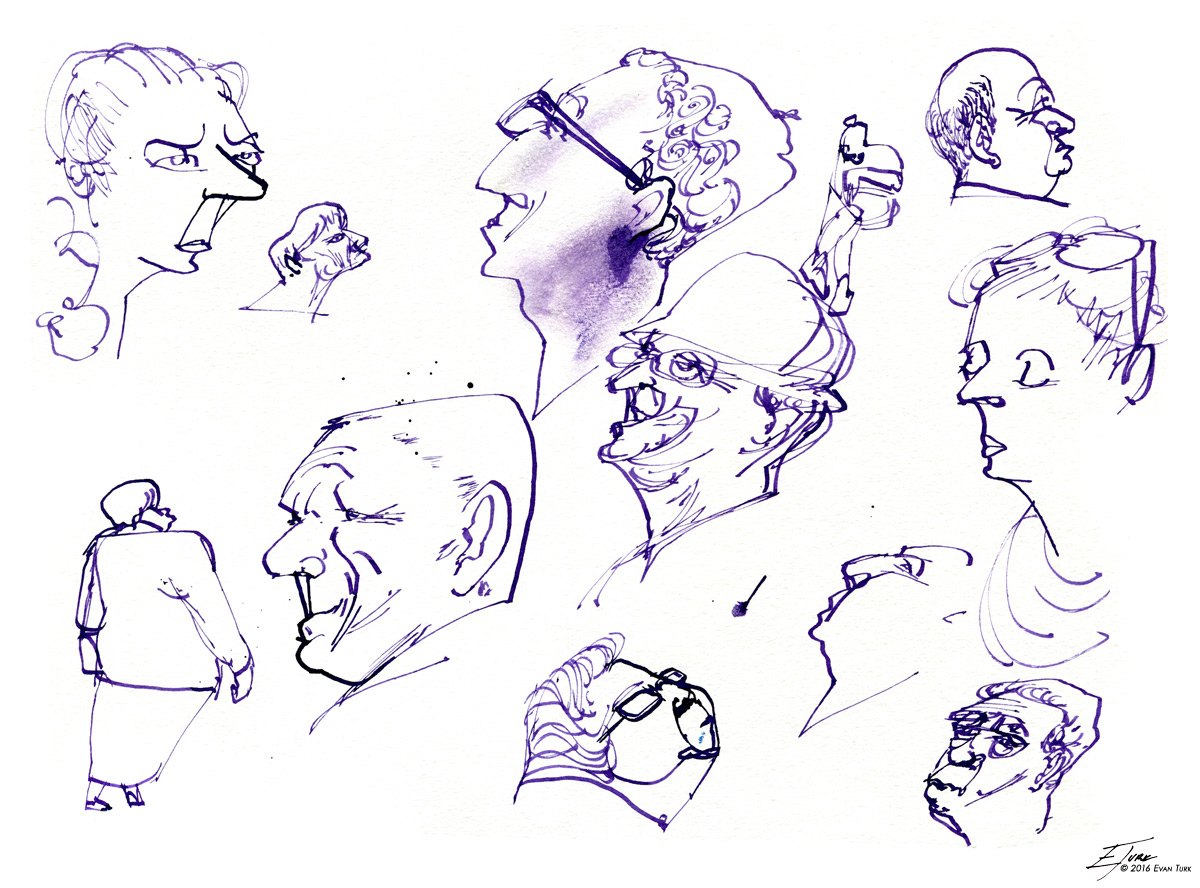Ahh Tuscany! From Rome we drove north towards the Val D'Orcia, a UNESCO World Heritage Site in the Tuscany region with rolling hills and regiments of spire-like cypresses punctuating the hillsides.
On the way to where we were staying, we planned to visit the town of Marta for a spring festival called La Barrabata. After a series of delays, we arrived in Marta just as the parade made it's last turn through the center of town. I drew frantically as the procession got swallowed up by the crowd following it. Only men marched in the parade, most with straw hats and plaid handkerchiefs, with floats displaying the fruits of their trades (fish, fruit, bread, cheese, vegetables, buffalo, sheaves of wheat). Women threw rose petals from the overlooking balconies as the crowds made their way up the hillside to the church.
With some help from an older local man, we made our way up to the church at the very top of the hill to find that the entire procession was now displayed for viewing behind the church. There were elaborate, flower-covered floats with tiny fountains, white buffalo, sheep, and hundreds of people celebrating. Just as I started to draw, the clouds that had been building emptied into a steady downpour. After trying to wait it out, we eventually joined the umbrella-ed masses descending the slope. I suppose when traveling you are always supposed to leave something undone, so there is a reason to come back! Next time!
It was rainy on and off for most of our stay, but that just made the landscapes more dramatic. We hadn't expected it to be so green and lush! It was amazing to see the dark thunderstorms roll over the towns and hills in the distance.
There is so much beauty, big and small. The roads are lined with tiny, delicate paper poppies and dramatic rows of cypresses.
We learned that some of the cypresses in the area date back to the 11th century when they were planted along the pilgrimage routes Via Roma and Via Francigena that led through the area between Canterbury and Rome. The trees were seen as pillars to the heavens because of their vertical nature. Many of the farmhouses sit on hilltops and were lookout posts to aid travelers as the route was often plagued by robbers and thieves.
Built by Aeneas Silvius Piccolomini, also known as Pope Pius II, Pienza was constructed in 1459 as the Piccolomini's idea of the ideal Renaissance town. After being there, it's not a stretch! It has gorgeous piazzi, palazzi, and narrow cobblestone streets. The air is full of the cooing of wood pigeons and clanging bells, and the smell of delicious pecorino toscano cheese.
The city is surrounded by a walled walkway with incredible panoramic views of the Val D'Orcia. Layer after layer of hills, cypresses, villas and towns that disappear and blend into the rolling storms.
In the center of the town is the beautiful duomo, a very early Renaissance cathedral. We were there on a Sunday, so locals from the region were out in full force along with the tourists to enjoy the beautiful day. There was even a woman playing the flute under the colonnade as I was making the drawing above.
It's always nice to be able to draw the locals when traveling. People's faces in Italy often feel like they came straight out of a Renaissance painting.
On one excursion, we visited a nearby natural hot spring, or acqu calda, named Fosso Bianco. After a short walk down the hill through the woods, you can smell the sulfurous mineral baths as you approach. Steaming mineral water pours down over the enormous, white calcium-covered terraces as people collect in the various pools to bask in the warmth.
On our last day, we left the Tuscany countryside for Florence, but made a stop in Siena, one of the most beautiful cities in the area. The medieval city boasts unique, rich architecture, the Piazza del Campo where the famous Palio horse race occurs (next time!), and a striking striped cathedral. After only a couple hours, it was onto Florence, but we will definitely be returning to Siena!
This post is part of
a series of travel illustration from a three week tour of Italy. For
more of Evan Turk's travel illustration, check out the link below:











